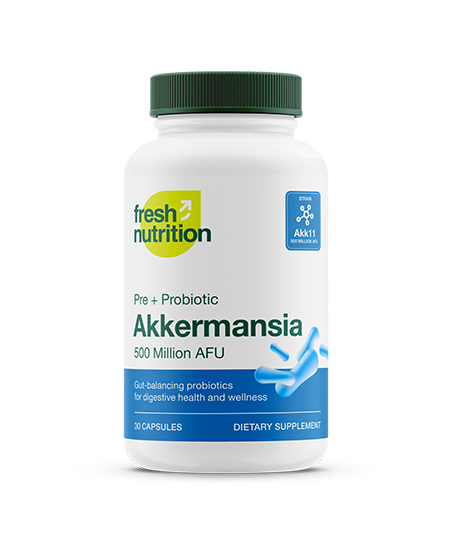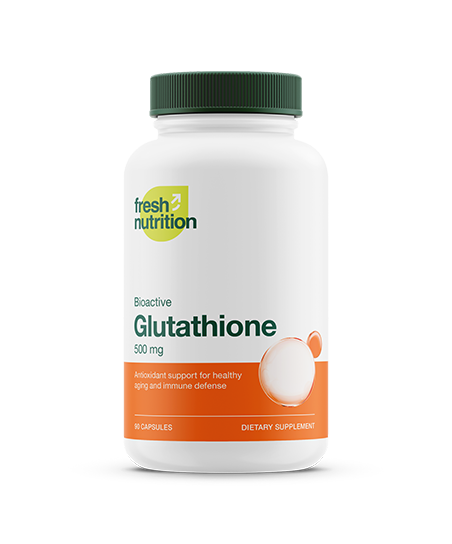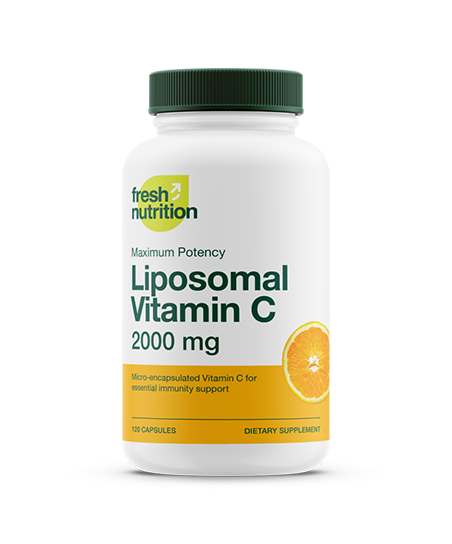The benefits of lemon balm for the human body
Lemon balm (Melissa officinalis) has been used historically and contemporarily as a modulator of mood and cognitive function, with anxiolytic effects following administration of capsules, coated tablets and topical application.
Lemon balm is a perennial herb from the mint family. The leaves, which have a mild lemon aroma, are used to make medicine. Lemon balm is used alone or as part of various multi-herb combination products. Lemon balm is used for digestive problems, including upset somach, bloating, intestinal gas (flatulence), vomiting, and colic; for pain, including menstrual cramps, headache and toothache; and for mental disorders, including hysteria and melancholia.
Many people believe lemon balm has calming effects so they take it for anxiety, sleepproblems, and restlessness. Lemon balm is also used for Alzheimer's disease, attention deficit-hyperactivity disorder (ADHD), an autoimmune disease involving the thyroid (Graves' disease), swollen airways, rapid heartbeat due to nervousness, high blood pressure, sores, tumors, and insect bites. Lemon balm is inhaled as aromatherapy for Alzheimer's disease. Some people apply lemon balm to their skin to treat cold sores (herpes labialis). In foods and beverages, the extract and oil of lemon balm are used for flavoring.
Some research shows that taking a specific lemon balm product (Cyracos by Naturex SA) reduces symptoms in people with anxiety disorders. Also, early research shows that taking a product containing lemon balm plus 12 other ingredients (Klosterfrau Melissengeist by Klosterfrau) reduces anxiety sym
Lemon balm (Melissa officinalis) has been used historically and contemporarily as a modulator of mood and cognitive function, with anxiolytic effects following administration of capsules, coated tablets and topical application.
Lemon balm is a perennial herb from the mint family. The leaves, which have a mild lemon aroma, are used to make medicine. Lemon balm is used alone or as part of various multi-herb combination products. Lemon balm is used for digestive problems, including upset stomach, bloating, intestinal gas (flatulence), vomiting, and colic; for pain, including menstrual cramps, headache and toothache; and for mental disorders, including hysteria and melancholia.
Many people believe lemon balm has calming effects so they take it for anxiety, sleepproblems, and restlessness. Lemon balm is also used for Alzheimer's disease, attention deficit-hyperactivity disorder (ADHD), an autoimmune disease involving the thyroid (Graves' disease), swollen airways, rapid heartbeat due to nervousness, high blood pressure, sores, tumors, and insect bites. Lemon balm is inhaled as aromatherapy for Alzheimer's disease. Some people apply lemon balm to their skin to treat cold sores (herpes labialis). In foods and beverages, the extract and oil of lemon balm are used for flavoring.
Some research shows that taking a specific lemon balm product (Cyracos by Naturex SA) reduces symptoms in people with anxiety disorders. Also, early research shows that taking a product containing lemon balm plus 12 other ingredients (Klosterfrau Melissengeist by Klosterfrau) reduces anxiety symptoms such as nervousness or edginess.
Upset stomach (dyspepsia). A specific product containing lemon balm, peppermint leaf, German chamomile, caraway, licorice, clown's mustard plant, celandine, angelica, and milk thistle (Iberogast by Steigerwald Arzneimittelwerk GmbH) seems to improve acid reflux (GERD), stomach pain, cramping, nausea, and vomiting. Also, a similar product containing peppermint leaf, clown's mustard plant, German chamomile flower, caraway, licorice root, and lemon balm (STW 5-II by Steigerwald Arzneimittelwerk GmbH) seems to improve stomach and intestinal symptoms in people with upset stomach.
Herpes simplex virus infections. Applying a lip balm containing an extract of lemon balm (LomaHerpan by Infectopharm) to the infected area seems to shorten healing time and reduce symptoms of recurring herpes infections if applied at the early stages of infection.
Insomnia. Taking lemon balm (Cyracos by Naturex SA) twice daily for 15 days improves sleep in people with sleep disorders. Also, taking lemon balm in combination with other ingredients seems to help improve sleep quality in people with sleeping disorders.
Stress. Early research shows that taking a single dose of lemon balm increases calmness and alertness in adults during a stress test. Other early research shows that adding lemon balm to a food or drink reduces anxiety and improves memory and alertness during mental testing. Also, lemon balm appears to reduce anxious behavior in children during dental exams. Taking lemon balm along with valerian at a low dose appears to reduce anxiety during stress tests. But taking the combination at a higher dose appears to worsen stress-induced anxiety.
ptoms such as nervousness or edginess.
Upset stomach (dyspepsia). A specific product containing lemon balm, peppermint leaf, German chamomile, caraway, licorice, clown's mustard plant, celandine, angelica, and milk thistle (Iberogast by Steigerwald Arzneimittelwerk GmbH) seems to improve acid reflux (GERD), stomach pain, cramping, nausea, and vomiting. Also, a similar product containing peppermint leaf, clown's mustard plant, German chamomile flower, caraway, licorice root, and lemon balm (STW 5-II by Steigerwald Arzneimittelwerk GmbH) seems to improve stomach and intestinal symptoms in people with upset stomach.
Herpes simplex virus infections. Applying a lip balm containing an extract of lemon balm (LomaHerpan by Infectopharm) to the infected area seems to shorten healing time and reduce symptoms of recurring herpes infections if applied at the early stages of infection.
Insomnia. Taking lemon balm (Cyracos by Naturex SA) twice daily for 15 days improves sleep in people with sleep disorders. Also, taking lemon balm in combination with other ingredients seems to help improve sleep quality in people with sleeping disorders.
Stress. Early research shows that taking a single dose of lemon balm increases calmness and alertness in adults during a stress test. Other early research shows that adding lemon balm to a food or drink reduces anxiety and improves memory and alertness during mental testing. Also, lemon balm appears to reduce anxious behavior in children during dental exams. Taking lemon balm along with valerian at a low dose appears to reduce anxiety during stress tests. But taking the combination at a higher dose appears to worsen stress-induced anxiety.
Lemon balm is a perennial herb from the mint family. The leaves, which have a mild lemon aroma, are used to make medicine. Lemon balm is used alone or as part of various multi-herb combination products. Lemon balm is used for digestive problems, including upset somach, bloating, intestinal gas (flatulence), vomiting, and colic; for pain, including menstrual cramps, headache and toothache; and for mental disorders, including hysteria and melancholia.
Many people believe lemon balm has calming effects so they take it for anxiety, sleepproblems, and restlessness. Lemon balm is also used for Alzheimer's disease, attention deficit-hyperactivity disorder (ADHD), an autoimmune disease involving the thyroid (Graves' disease), swollen airways, rapid heartbeat due to nervousness, high blood pressure, sores, tumors, and insect bites. Lemon balm is inhaled as aromatherapy for Alzheimer's disease. Some people apply lemon balm to their skin to treat cold sores (herpes labialis). In foods and beverages, the extract and oil of lemon balm are used for flavoring.
Some research shows that taking a specific lemon balm product (Cyracos by Naturex SA) reduces symptoms in people with anxiety disorders. Also, early research shows that taking a product containing lemon balm plus 12 other ingredients (Klosterfrau Melissengeist by Klosterfrau) reduces anxiety sym
Lemon balm (Melissa officinalis) has been used historically and contemporarily as a modulator of mood and cognitive function, with anxiolytic effects following administration of capsules, coated tablets and topical application.
Lemon balm is a perennial herb from the mint family. The leaves, which have a mild lemon aroma, are used to make medicine. Lemon balm is used alone or as part of various multi-herb combination products. Lemon balm is used for digestive problems, including upset stomach, bloating, intestinal gas (flatulence), vomiting, and colic; for pain, including menstrual cramps, headache and toothache; and for mental disorders, including hysteria and melancholia.
Many people believe lemon balm has calming effects so they take it for anxiety, sleepproblems, and restlessness. Lemon balm is also used for Alzheimer's disease, attention deficit-hyperactivity disorder (ADHD), an autoimmune disease involving the thyroid (Graves' disease), swollen airways, rapid heartbeat due to nervousness, high blood pressure, sores, tumors, and insect bites. Lemon balm is inhaled as aromatherapy for Alzheimer's disease. Some people apply lemon balm to their skin to treat cold sores (herpes labialis). In foods and beverages, the extract and oil of lemon balm are used for flavoring.
Some research shows that taking a specific lemon balm product (Cyracos by Naturex SA) reduces symptoms in people with anxiety disorders. Also, early research shows that taking a product containing lemon balm plus 12 other ingredients (Klosterfrau Melissengeist by Klosterfrau) reduces anxiety symptoms such as nervousness or edginess.
Upset stomach (dyspepsia). A specific product containing lemon balm, peppermint leaf, German chamomile, caraway, licorice, clown's mustard plant, celandine, angelica, and milk thistle (Iberogast by Steigerwald Arzneimittelwerk GmbH) seems to improve acid reflux (GERD), stomach pain, cramping, nausea, and vomiting. Also, a similar product containing peppermint leaf, clown's mustard plant, German chamomile flower, caraway, licorice root, and lemon balm (STW 5-II by Steigerwald Arzneimittelwerk GmbH) seems to improve stomach and intestinal symptoms in people with upset stomach.
Herpes simplex virus infections. Applying a lip balm containing an extract of lemon balm (LomaHerpan by Infectopharm) to the infected area seems to shorten healing time and reduce symptoms of recurring herpes infections if applied at the early stages of infection.
Insomnia. Taking lemon balm (Cyracos by Naturex SA) twice daily for 15 days improves sleep in people with sleep disorders. Also, taking lemon balm in combination with other ingredients seems to help improve sleep quality in people with sleeping disorders.
Stress. Early research shows that taking a single dose of lemon balm increases calmness and alertness in adults during a stress test. Other early research shows that adding lemon balm to a food or drink reduces anxiety and improves memory and alertness during mental testing. Also, lemon balm appears to reduce anxious behavior in children during dental exams. Taking lemon balm along with valerian at a low dose appears to reduce anxiety during stress tests. But taking the combination at a higher dose appears to worsen stress-induced anxiety.
ptoms such as nervousness or edginess.
Upset stomach (dyspepsia). A specific product containing lemon balm, peppermint leaf, German chamomile, caraway, licorice, clown's mustard plant, celandine, angelica, and milk thistle (Iberogast by Steigerwald Arzneimittelwerk GmbH) seems to improve acid reflux (GERD), stomach pain, cramping, nausea, and vomiting. Also, a similar product containing peppermint leaf, clown's mustard plant, German chamomile flower, caraway, licorice root, and lemon balm (STW 5-II by Steigerwald Arzneimittelwerk GmbH) seems to improve stomach and intestinal symptoms in people with upset stomach.
Herpes simplex virus infections. Applying a lip balm containing an extract of lemon balm (LomaHerpan by Infectopharm) to the infected area seems to shorten healing time and reduce symptoms of recurring herpes infections if applied at the early stages of infection.
Insomnia. Taking lemon balm (Cyracos by Naturex SA) twice daily for 15 days improves sleep in people with sleep disorders. Also, taking lemon balm in combination with other ingredients seems to help improve sleep quality in people with sleeping disorders.
Stress. Early research shows that taking a single dose of lemon balm increases calmness and alertness in adults during a stress test. Other early research shows that adding lemon balm to a food or drink reduces anxiety and improves memory and alertness during mental testing. Also, lemon balm appears to reduce anxious behavior in children during dental exams. Taking lemon balm along with valerian at a low dose appears to reduce anxiety during stress tests. But taking the combination at a higher dose appears to worsen stress-induced anxiety.




